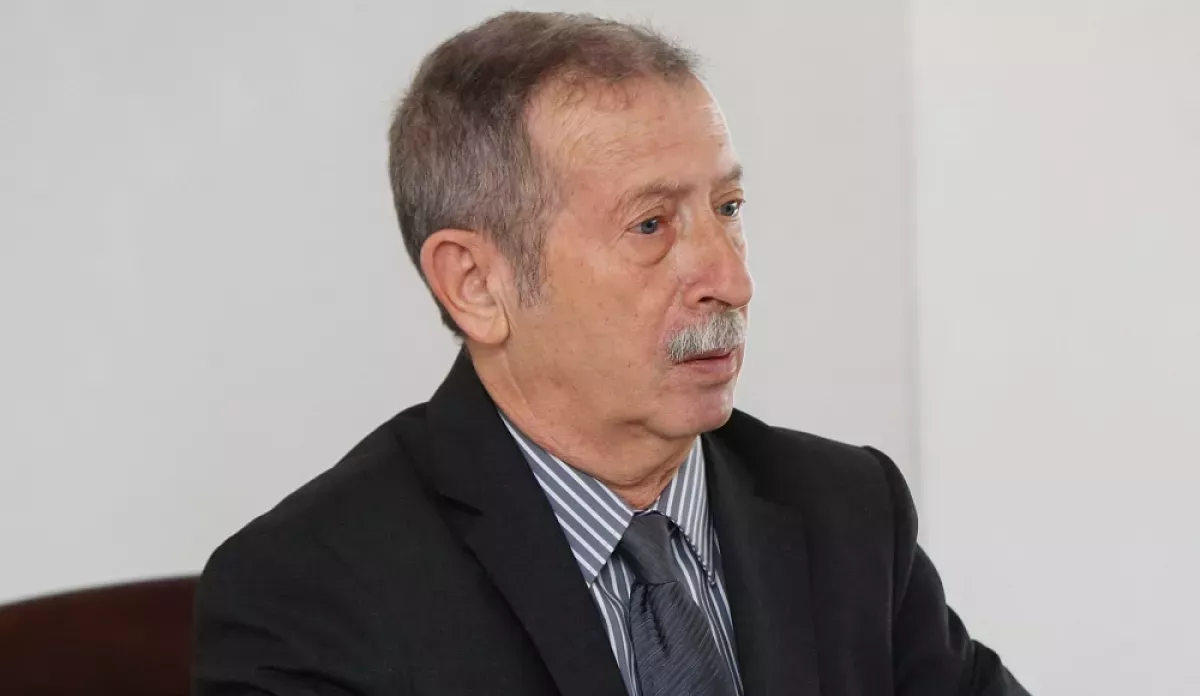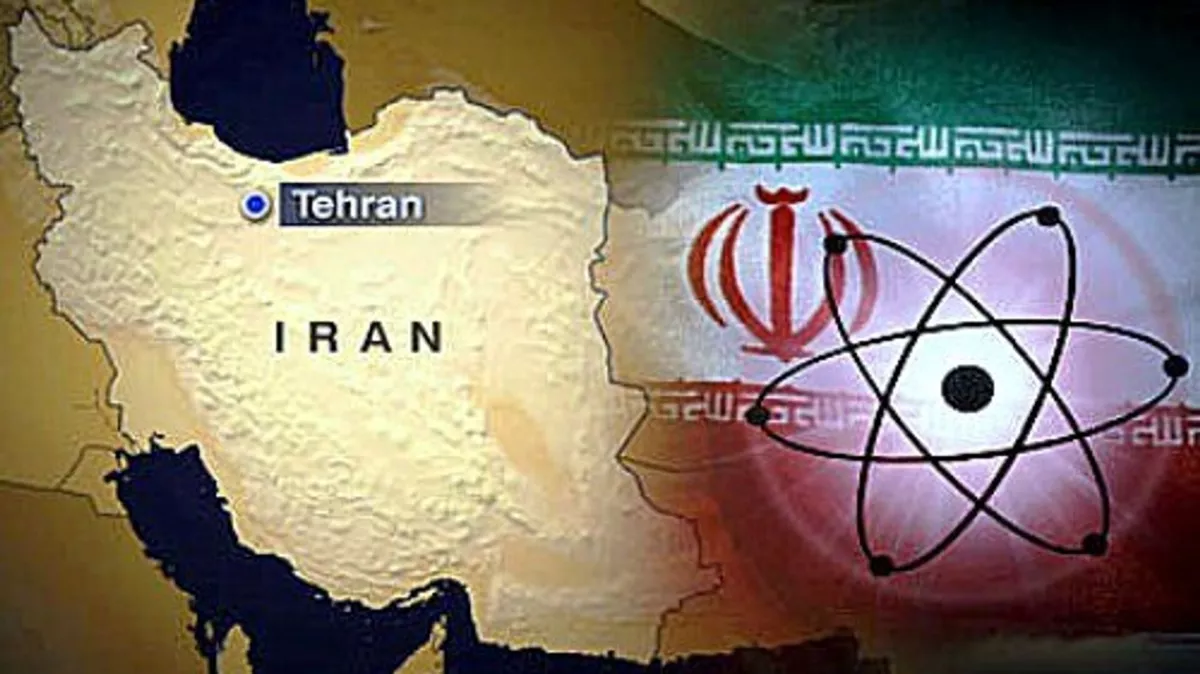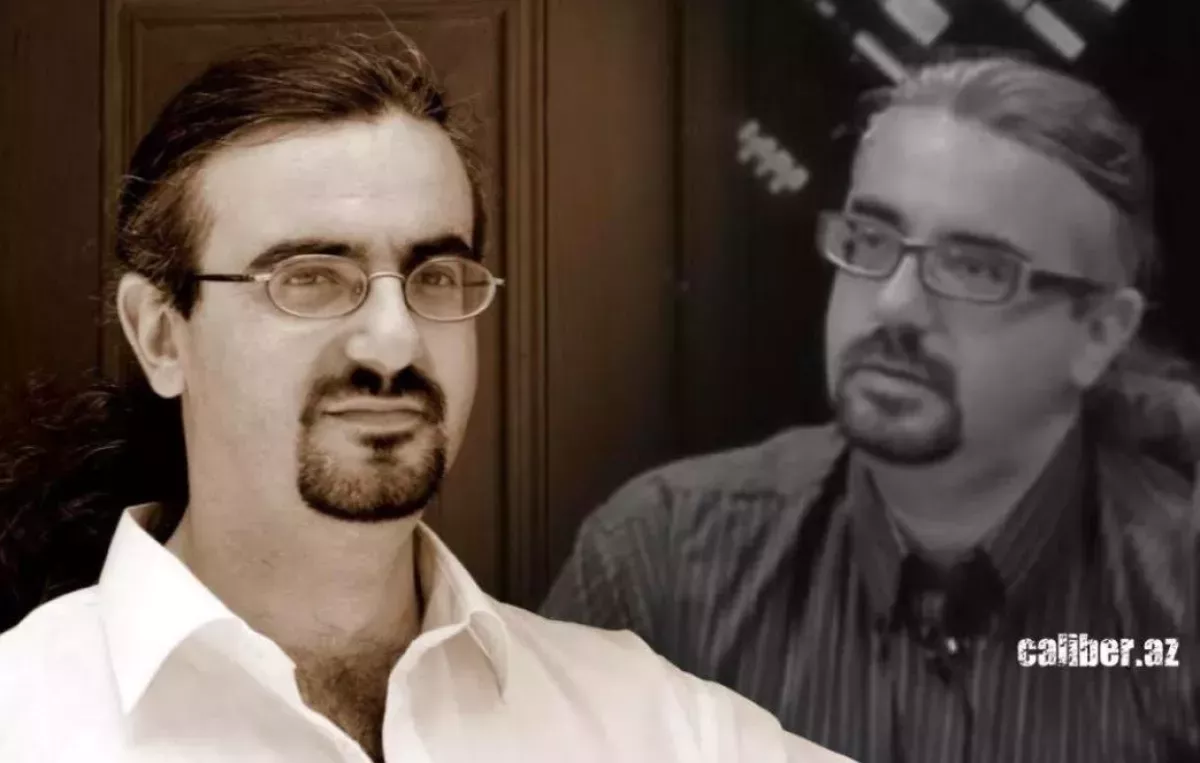Iran's nuclear ambitions: A growing threat to Middle East stability Expert insights
Iran has significantly accelerated its uranium enrichment to 60%, edging closer to weapons-grade levels, according to IAEA Director General Rafael Grossi in a statement to Reuters. The latest IAEA quarterly report reveals that Iran has amassed enough enriched uranium to produce four nuclear bombs, even if enrichment were to cease at this stage.
How real are the risks? What could the region face if Tehran were to acquire nuclear weapons?
Foreign experts shared their perspectives with Caliber.Az.

Dr. Vladimir Mesamed, Israeli orientalist, expert on Iran and Central Asia, lecturer at the Institute of Asian and African Studies at the Hebrew University in Jerusalem, highlights a complex duality surrounding Iran’s nuclear program as a significant threat to the entire Middle East.
"On one hand, two weeks ago, the IAEA Board of Governors convened and adopted a firm resolution spearheaded by the European trio—Britain, France, and Germany. In this statement, Iran was warned against further uranium enrichment, as it is already enriching uranium to nearly 60%, and possibly even higher, as some evidence suggests. Iran was advised not to flaunt this progress, as the IAEA could take more stringent measures.
On the other hand, President Pezeshkian came to power riding a wave of promises to pursue mutually acceptable compromises or negotiations to push forward the yet-to-be-signed new JCPOA ('nuclear deal').
In recent days, there have been noteworthy developments in the diplomatic sphere regarding Iran’s nuclear program. Two senior Iranian diplomats—Deputy Foreign Minister Kazem Gharibabadi and Majid Takht-Ravanchi, a veteran negotiator involved in the 2015 JCPOA talks—met with Enrique Mora in Geneva.
Enrique Mora, a key figure in EU-Iran relations, holds the position of Deputy Secretary-General of the European External Action Service (EEAS) and effectively serves as the Deputy High Representative of the EU for Foreign Affairs and Security Policy. Mora’s unique role allows him to maintain official contacts with Iran, a relationship he has leveraged by attending the inaugurations of Iran's last two presidents on behalf of the EU.
Mora’s recent meeting aligns with the EU’s official stance toward Iran, known as ‘critical engagement.’ This approach combines open communication channels with the potential for sanctions when necessary. Despite some criticism within the EU, including accusations that his attendance at Iranian presidential inaugurations contradicts the bloc’s core values, outlets like Euronews have highlighted that this strategy remains consistent with Brussels' broader policy toward Tehran.
Following the Geneva meeting with Enrique Mora, Iranian Deputy Foreign Minister Kazem Gharibabadi announced that diplomatic negotiations would be initiated. Speaking to the press, he noted that the meeting provided an opportunity to review and assess recent bilateral, regional, and global developments.
However, Iranian Foreign Minister Abbas Araghchi offered a different perspective. He stated that progress toward reviving the JCPOA remains minimal. Known for occasionally taking hardline stances while presenting himself as a liberal, Araghchi described the Geneva meeting as a ‘brainstorming session’ aimed at determining whether there is a viable path forward for negotiations.
Meanwhile, the West is closely monitoring the situation. Prior to the IAEA Board of Governors meeting, Director General Rafael Grossi visited Tehran, making various promises. Yet, Iran's response to the IAEA’s resolution was to escalate its nuclear activities, announcing plans to deploy new centrifuges and increase its stockpile of enriched uranium,” Mesamed said.

According to him, Iranian officials believe that the West’s push for negotiations stems from forced circumstances rather than genuine intent.
“They argue that the acute phase of the Syrian crisis plays a key role here. Iran’s Kayhan newspaper recently stated that European outreach toward Tehran must be viewed in the context of last week’s developments in Syria. They claim that Assad’s regime has essentially fallen, and the West’s support for Syrian rebels, seen by Iran as aiding Zionists, demonstrates Western duplicity. Therefore, they argue, the West cannot be trusted as a reliable political force.
This sentiment is echoed in the United States, where Iran’s continuation of uranium enrichment is viewed as an escalation of tensions rather than cooperation with the IAEA.
Regarding the prospects of these negotiations, Iranian analyst Mohammad Javad Jamali Jamandan Gani stated that it is impossible to be certain that the parties will succeed, and that one should not make hasty or premature judgments, because negotiations are a very long process. Indeed, if we recall the negotiations that led to the JCPOA, they lasted 12 years. He notes that the situation in the region has become unstable, and therefore something must be done. Hence, there should be no breaks in the dialogue.
On the other hand, we must also remember that Iran is indeed striving for a nuclear bomb, as it has almost officially stated recently, especially visible in the debate about whether the fatwa prohibiting the production of nuclear weapons should be altered. In Iran, there has been a long-standing discussion about this being a necessary process, not only producing and stockpiling nuclear weapons but also using them.
This was recently highlighted in an open letter from members of the Iranian Majlis, with many speeches, which may give this issue official weight.
But the Iranians also know that a new era is coming, with Trump potentially returning to power, and they are afraid of him. Therefore, they will likely refrain from making any drastic moves. However, they don't need to make sharp moves; they continue to accumulate nuclear stockpiles, which does not attract the world's attention because there are no IAEA observers there, as they have long been deprived of this right, and the latest decision of the IAEA Board of Governors does not suggest that this right will be reinstated.
Therefore, sharp moves in the Middle East are possible. But I want to say that even if Iran acquires a nuclear bomb in the near future (which is unlikely, because Israel always keeps this under control), it will simply be a deterrent element, as the Iranians themselves claim. The real question is whether the Iranians can be trusted. I don't think so," concludes Mesamed.

In turn, expert on Iran and journalist Michael Borodkin stated that Iran has long developed its nuclear program, alongside building a defense system on distant frontiers, using its proxies and satellites, from Hezbollah in Lebanon to the Houthi rebels in Yemen.
"Recent tumultuous events in the region have brought this defense system to the brink of collapse. Therefore, it seems logical that the development of a second means, which the regime considers the main guarantee of its security — its nuclear program — is underway.
The fall of Bashar al-Assad's regime in Syria means for Iran the loss of a key link in the chain they have forged for many years. Lebanese Hezbollah has already been greatly weakened by the war with Israel, and now its existence will be in question, as without control over Syria, the Iranian regime is unlikely to be able to restore its combat potential," the researcher believes.
All of this, he says, could scare the Iranian regime enough that they will try to finish their work on nuclear weapons as quickly as possible.
"The transformation of Iran into a nuclear power would mean an immediate arms race in the Middle East. Following Tehran, nuclear weapons would be developed by Türkiye, Saudi Arabia, and Egypt in the first stage, and possibly by other countries later. Such a scenario, of course, would lead to significant destabilization in the Middle East, potentially even new wars," Borodkin suggested.








